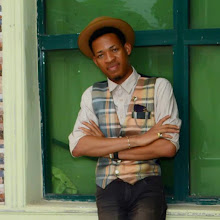WHAT CLINTON AND TRUMP SHOULD DO AFTER THE ELECTION
“Well, I support our democracy,” Clinton had said. “And sometimes you win, sometimes you lose.” That last phrase was a nod to a quality many of her supporters see in her: the maturity that comes from deciding that a day that may have gone badly for you is not the day you give up. Clinton continued, “But I certainly will support the outcome of this election. And I know Donald’s trying very hard to plant doubts about it, but I hope the people out there understand: this election’s really up to you. It’s not about us so much as it is about you and your families and the kind of country and future you want.” As she spoke, Trump, on the split screen, tilted his head, with pursed lips and a tight nod. He may have wanted to give the impression of a man skeptically sizing up Clinton’s patriotism, but one suspected that he was just mulling the damage Clinton had done to him in the exchange a moment before, in which she quoted Alicia Machado, a former Miss Universe, who has said that Trump called her “Miss Piggy” and “Miss Housekeeping” when she gained weight after the pageant. (The Machado story would become even more baroque in the days that followed.)
In either case, when Trump started speaking, it was as if the greatest puzzle he saw was not how the election results would be received but that certain people had the temerity to vote at all.
“People are pouring into our country,” he said. “The other day, we were deporting eight hundred people. And perhaps they passed the wrong button, they pressed the wrong button—or perhaps, worse than that, it was corruption—but these people that we were going to deport for good reason ended up becoming citizens.” At that, he paused and, shaking his index finger, repeated, “Ended up becoming citizens.” What was on display here was not just Trump’s lack of discipline—some compulsion to talk about immigrants as if they were destructive infiltrators. The button Trump himself was pushing, for many in his base, was the one that activated conspiracy theories postulating that the main reason Democrats respect immigrant rights is because Democrats want to import pliable voters. Often enough, what sounds like a simple Trumpian non sequitur is something worse: a call to paranoid arms. As Trump began to ramble about the numbers—“And now it turns out it might be eighteen hundred, and they don’t even know”—Holt broke in, and asked the question again. Would Trump accept the results?
“Look, here’s the story. I want to make America great again,” Trump said. “I’m going to be able to do it. I don’t believe Hillary will.” Then, finally, “The answer is, if she wins, I will absolutely support her.”
Why was that, a basic recitation of the workings of the American electoral process, so hard to wring out of him? Holt’s question didn’t come out of nowhere. As Clinton said, Trump has tried very, very hard to plant doubts about the fairness of the election. He has, in rally after rally, suggested that it might be stolen from him in ways both visible and hidden. He asks crowds why Clinton was allowed to run, and says that he guesses she is now the puppet of the President and whoever else got to the F.B.I. and kept her out of jail. He rails about the machinations of power-hungry billionaires, as if referring not to the text in a teleprompter but to a mirror image of himself. The media, he tells his supporters, is helping Hillary by lying about him. He yells, “End the Clinton corruption!”; the crowd responds with a chorus of “Lock her up!” “Cheating” and “rigging” are terms that he has used; so is ”Second Amendment people.” And he tells his supporters, as he did in Iowa on Wednesday, that a Democratic victory might mean that sections of the Constitution will be thrown out with impunity and that there will be no more fair elections: “We’re never going to have another shot—this is it. The tables will turn and then it’s over.” He added, “Remember—follow the money.” Trump, who spent years impugning the legitimacy of the first African-American President, has seemed to be getting ready to attack the legitimacy of the Presidential election itself—unless he wins, that is.











Leave a Comment